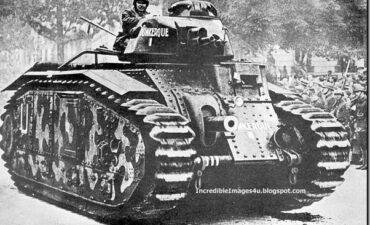How Did the Mighty Imperial Japanese Kwantung Army Fall So Quickly to the Soviets in WWII?
How Did the Mighty Imperial Japanese Kwantung Army Fall So Quickly to the Soviets in WWII? The rapid defeat of the Imperial Japanese Kwantung Army by Soviet forces in 1945 can be attributed to several key factors:
Timing and Surprise:
The Soviet Union declared war on Japan on August 8, 1945, just days after the atomic bombings of Hiroshima and Nagasaki. The timing of the Soviet offensive took the Japanese by surprise, as they were primarily focused on the aftermath of the bombings and their ongoing efforts to negotiate peace with the United States.
Soviet Military Strength:
The Red Army had undergone significant reorganization and strengthening following its successes on the Eastern Front against Nazi Germany. By 1945, the Soviets had well-trained troops, advanced tactics, and a wealth of experience in large-scale operations.
Strategic Planning and Execution:
The Soviets planned their offensive meticulously, launching a well-coordinated attack on August 9, 1945. The operation involved overwhelming forces and rapid movements, which caught the Kwantung Army off-guard and unable to mount an effective defense.
Japanese Overextension:
The Kwantung Army was overstretched and had been weakened by years of fighting in China and the Pacific. Many of its best units were deployed elsewhere, leaving a relatively diminished force to defend against the Soviet attack.
Poor Morale and Leadership:
By 1945, Japanese forces were demoralized and struggled with leadership challenges. Many soldiers were aware of Japan’s precarious situation and lacked the will to fight effectively against the advancing Soviet troops.
Soviet Tactics:
The Soviets employed effective combined arms tactics, coordinating infantry, armor, and air support to break through Japanese defenses quickly. They used mechanized units to encircle and isolate Japanese positions, leading to rapid breakthroughs.
Limited Japanese Preparation:
The Japanese had not anticipated a Soviet attack in Manchuria, leading to inadequate fortifications and preparations. The Kwantung Army was also constrained by logistical difficulties and had limited resources to defend against the Soviet advance.
As a result of these factors, the Soviet campaign in Manchuria was swift and decisive, leading to the collapse of the Kwantung Army within weeks. The defeat further accelerated Japan’s decision to surrender, culminating in the end of World War II.








